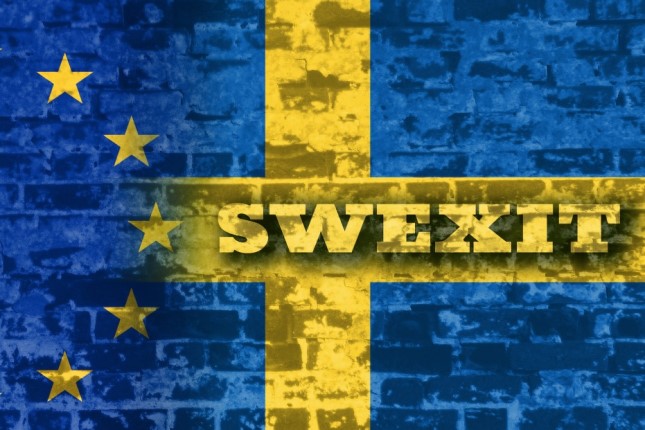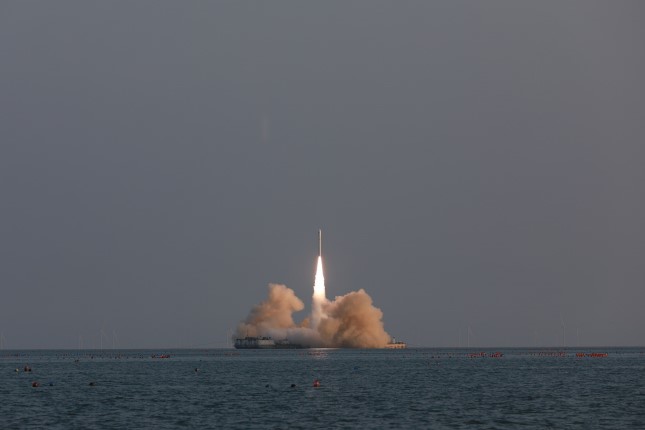In late autumn and early winter, Sweden suddenly emerged as a bit of a troublemaker in Europe, with a wave of statements coming out from politicians and celebrities in support of Sweden withdrawing from the European Union. The #Swexit hashtag quickly became a hit on Twitter.
The European Commission's proposal to again raise the excise duty, and thus the prices, on snus (non-smoking tobacco) may seem unimportant, but not for the Swedes: Theirs is the only EU country where snus is still legally sold after the 1992 ban. Norway also sells it, but the Swedish neighbour is not an EU member.
Snus is popular in Sweden, but it is already quite expensive. And the Swedes are puzzled − why does Brussels care about their harmless national habits?
Both sides − the European Commission and the Swedes − are behaving rather astonishingly in this story. The former is clearly poking its nose into other people's affairs, thus provoking a harsh reaction. The latter are seriously overreacting: Leaving the EU over snus is extreme, especially given how harshly the Swedish authorities reacted to Brexit.

A snus showcase in a store in Sweden.
However, the story doesn't seem quite as strange if you take into account the fact that Sweden is serving as EU chairman for the first half of 2023. And now there is a struggle over the agenda, with snus as an opportunity for Brussels to sting Stockholm.
Stockholm is against it
However, the European Commission's attempt to pressure Sweden failed, as evidenced by Stockholm's position in the unfolding trade and investment confrontation between the EU and the United States.
In mid-December, against the backdrop of US measures to reduce the impact of inflation on American enterprises (the Inflation Reduction Act, IRA), Swedish Minister for EU Affairs Jessika Roswall said that Sweden, as the future EU president country, opposes providing new state support to European companies, and in fact, it opposes the policy of trade and investment protectionism.
The IRA provides generous subsidies to electric vehicle, battery, and power equipment manufacturers operating within the United States. According to the EU, the Act could be the start of a new transatlantic commercial war. Both French President Emmanuel Macron and German Chancellor Olaf Scholz have already criticized the IRA and declared the need for retaliatory measures.
But Sweden does not share the approach of its neighbours.
"We do not believe that the solution lies in a state support race, or a trade war, or something like that. Many EU member states actively insist that something needs to be done to support European producers as well. I do not know how it will go, but I think it will be a big issue that Sweden, as chairman, will have to solve. We lagged behind in making our enterprises competitive and strong. Therefore, Europe should discuss this, which, as it seems to me, it has not done in recent years," said Roswall.
Thus, the Swedish approach is directly opposed to that of the leading EU countries—not to increase state support, but to strengthen the competitiveness of European business. This seems rather strange against the background of the ambitious USD 430 billion aid plan being implemented in the United States.
Dissenting opinion
Stockholm's fronde should not be too much of a surprise: The country is well established as a respectable European dissident. Thus, despite initially meeting all the criteria, Sweden refused to switch to the euro (along with Britain and Denmark). It traditionally sees itself more as a member of the transatlantic community than as a European country.
Despite being a neutral, non-NATO country, Sweden has never departed from its un-advertised alliance with the United States. And now, with its openly announced course of joining the North Atlantic Alliance, Stockholm's strategic orientation towards Washington is all the more evident.

Swedish Foreign Minister Ann Kristin Linde after signing the protocol on Sweden's accession to NATO (right), Jens Stoltenberg, NATO Secretary General (center), Finnish Foreign Minister Pekka Haavisto (left).
For a long time, Sweden's Euroscepticism went largely unnoticed in comparison to the EU's even more daring and more striking troublemaker − Britain.
Stockholm has been one of London's key allies on the continent for many years. Britain and Sweden had similar views on the goals and objectives of European integration, and they have traditionally supported each other in EU institutions.
That is why Brexit was so painful for Sweden. Left without a strong and reliable ally, Stockholm was forced to choose between the traditional alliance and solidarity and the official Brussels position on Brexit.
The British tried to use the support of the Swedish to their advantage, while leaving them without support for the future, and this caused a painful reaction in Stockholm.
Today, Sweden is forced to advance the transatlantic agenda alone and openly, creating a completely different tension in its relations with EU partners. Therefore, no matter how exotic the slogans about leaving the EU may sound now, their roots go much deeper than it might seem at first glance.
Arctic orientation
In the context of the deep social and economic crisis the EU is plunging into, various projects like the Hanseatic League 2.0 could become relevant again. Clearly, the United States is not interested in a strong Europe and perhaps is no longer even interested in preserving the EU and the eurozone. Strengthening political control through NATO structures seems like a better and more reliable route.
Therefore, it cannot be ruled out that Sweden's transatlantic priorities will finally outweigh its European ones at the next historical turn.

Swedish military training in the Arctic.
And in fact, this scenario is all the more likely because neighbouring Denmark is also traditionally more Washington- than Brussels-oriented. Norway is a member of NATO but not of the EU (though it is part of the European Economic Area and the European Free Trade Association). Finland is also preparing to join NATO.
Given that the Arctic is becoming a priority region for the United States, it can be expected that the Scandinavian countries and Britain will increasingly move into the sphere of direct American control.

































